Participation in STARS involves collecting information about your institution’s sustainability initiatives and performance, documenting that information in the online Reporting Tool and submitting a report to earn public recognition.
First Steps
1. Create a free AASHE user account
2. Register to gain access to the STARS Reporting Tool
3. Explore introductory articles in the Help Center to learn more about getting started
Data Collection
Identify a set of credits to pursue
To participate in STARS, you will need to identify which credits you will be pursuing and collect the required information from campus stakeholders. Credits are organized into the following categories and detailed in the Credit Checklist and Technical Manual:
- Academics (AC): Curriculum, Research
- Engagement (EN): Campus Engagement, Public Engagement
- Operations (OP): Buildings & Grounds, Energy & Climate, Food & Dining, Procurement & Waste, Transportation
- Planning & Administration (PA): Coordination & Planning, Investment Social Equity, Wellbeing & Work
- Innovation & Leadership (IL)
Please note that you do not have to complete each and every credit in STARS to participate. While many participants do pursue as many credits as possible to maximize their score and rating, it is not required. Some participants elect instead to only pursue those credits that they currently have the capacity to complete, with an eye toward adding additional credits in future reports. You can also opt out of the scoring and rating process by submitting as a STARS Reporter, alleviating any pressure to maximize the number of points earned.
Learn more about how to approach data collection
Document your information in the Reporting Tool
The information you collect must be documented in the STARS Reporting Tool. To assist in that process, you can give as many users as you like access to the online tool.
Access resources and get assistance
AASHE staff are available to help if you have questions along the way, so please don’t hesitate to get in touch. We also provide resources and support to help you manage data collection and interpret credit criteria.
Quality assurance
Once you have finalized all the credits you intend to pursue, AASHE strongly recommends that you complete an assurance process to identify and resolve inconsistencies and potential errors before you submit your report. This can be as simple as using the STARS Review Template internally to double-check that common issues have been addressed or you can use the template to structure a more comprehensive, independent assurance process (and earn points for your efforts). Completing this step can greatly reduce the amount of time it takes to publish your report and receive your rating.
- Access forms and templates
- Search the Help Center for answers to frequently asked questions
- Learn more about pre-submission assurance
Submission and Review
Two types of reports may be submitted:
1. Scored Report
A STARS subscription and a cover letter from a high-ranking executive at your institution are required to submit a scored report for a STARS Bronze, Silver, Gold or Platinum rating.
When you submit for a rating, AASHE staff will review your information for accuracy and adherence to credit criteria. Our goal is to return the review results to you within 30 days of submission. You will then have up to 60 additional days (or until the end of your current subscription) to address any issues that are identified. Once you have addressed every issue, your report will be published and the appropriate rating will be awarded.
Learn more about the collaborative review and revision process.
2. Unscored Report
Alternatively, you may submit an unscored report and earn designation as a STARS Reporter without a subscription, an executive cover letter, or AASHE staff review. An unscored report may be submitted as often as once a year to update your institution’s information in the STARS Benchmarking Tool without changing an existing rating. This is a good option when an institution has limited capacity, but would like to publicly share its successes and the data that are available.
Scoring and Recognition
Your institution’s final score will be based on the percentage of points it earns by pursuing relevant credits across Academics (AC), Engagement (EN), Operations (OP), and Planning & Administration (PA). Some credits may not apply to your institution. For example, the Food & Dining credits do not apply to institutions without dining services operations. This means that credits that are not relevant to your institution will not be counted against its score.
In addition, your institution may claim Innovation & Leadership points for exemplary and path-breaking initiatives. These bonus points are either added to the percentage-based score (STARS 2.2) or the total number of points earned (STARS 3.0).
Public recognition is earned on the following basis. STARS only provides positive recognition. Each seal represents significant sustainability leadership.
| Recognition Level | Minimum Overall Score | |
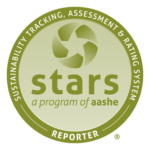 |
Reporter designation | Scores not published |
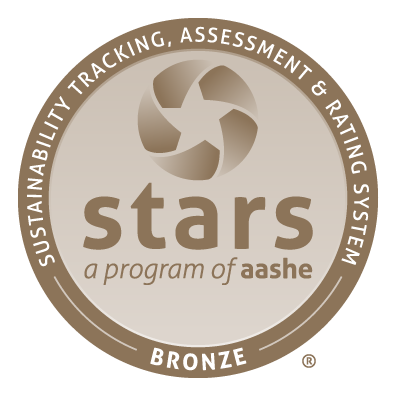 |
Bronze rating | 25 |
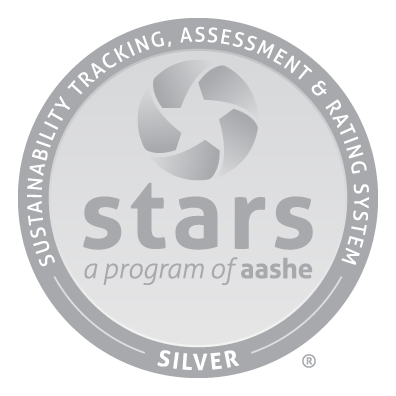 |
Silver rating | 45 |
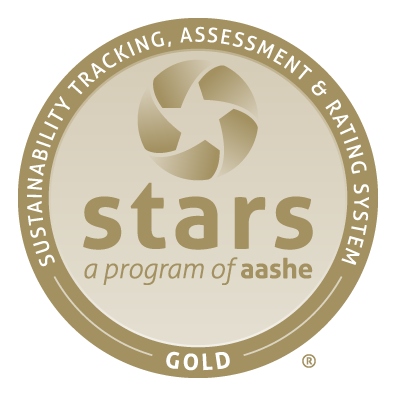 |
Gold rating | 65 |
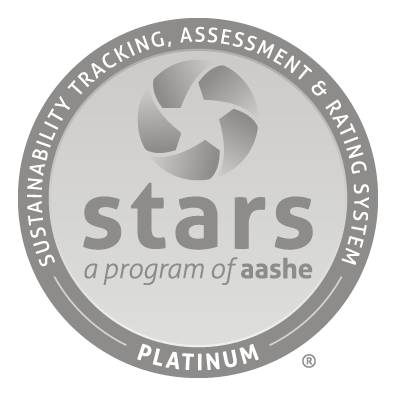 |
Platinum rating | 85 |
Each STARS report and rating is valid for three years from the date of publication, although you can re-submit an updated report as often as once a year.
